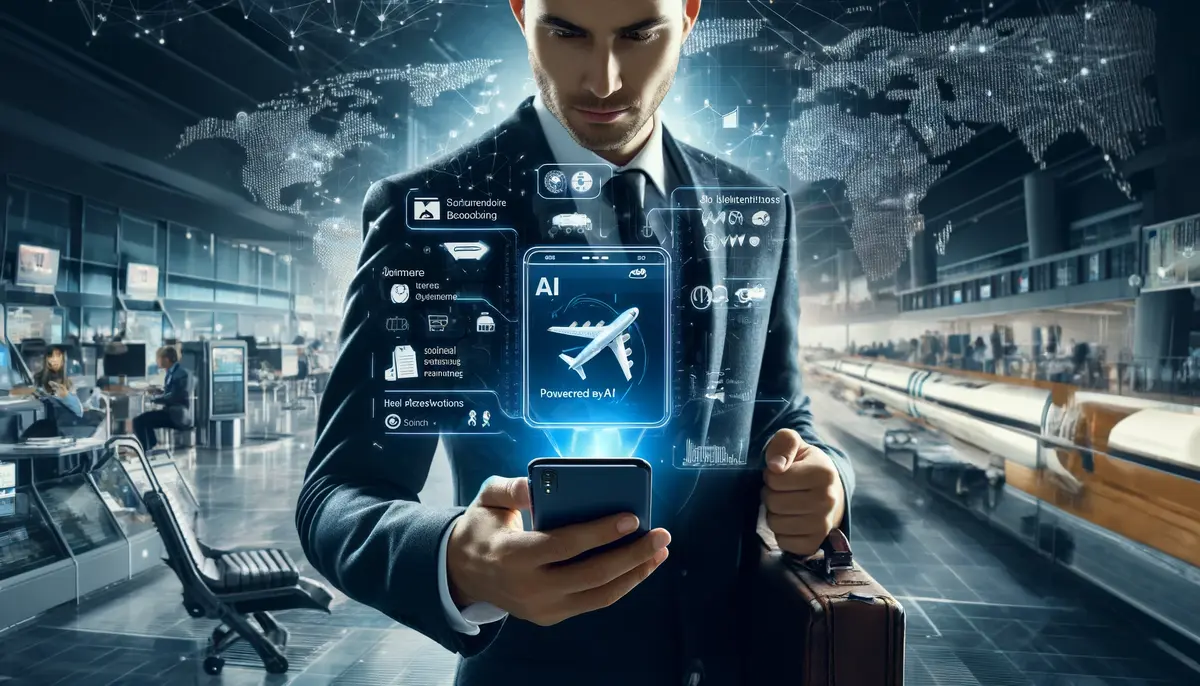In the fast-paced world of travel, technology has always played a significant role in making journeys smoother and more convenient. But in recent years, Artificial Intelligence (AI) has completely transformed trip booking and itinerary planning. Whether you’re a solo traveler, a family on vacation, or a business professional on the go, AI is making travel more personalized, efficient, and hassle-free.
1. AI-Powered Travel Assistants
Gone are the days of spending hours comparing flights, hotels, and itineraries. AI-driven travel assistants like Google Travel, Hopper, and Expedia’s AI chatbot do all the heavy lifting for you. They analyze vast amounts of data in seconds and provide tailored recommendations based on your preferences, budget, and travel history.
These virtual assistants can suggest the best flight deals, accommodations, and even the ideal time to book for maximum savings. Plus, they continuously learn from user behavior, making their recommendations more precise over time.
2. Personalized Travel Itineraries
AI takes itinerary planning to the next level by curating schedules that match individual tastes. Whether you love adventure, history, food, or relaxation, AI-based apps like TripIt and Roam Around suggest customized plans based on your interests.
These platforms consider multiple factors such as weather conditions, local events, and peak tourist hours to ensure you make the most of your trip. They can even adjust in real time if unforeseen circumstances arise, like flight delays or bad weather.
3. AI-Driven Flight and Hotel Predictions
One of the biggest concerns for travelers is finding the best prices for flights and hotels. AI helps by analyzing historical pricing data and predicting when fares will drop or rise. Apps like Skyscanner and Kayak use machine learning to notify users of price changes and suggest the best booking times.
Some AI-powered systems even offer price freeze options, allowing travelers to lock in deals before prices surge. This means no more regrets about booking too early or too late!
4. Smart Chatbots for Instant Support
Customer service has significantly improved with AI-driven chatbots. Whether you need assistance with booking changes, cancellations, refunds, or general travel inquiries, AI chatbots provide instant responses, eliminating the need for long customer service calls.
Many airlines, hotels, and travel agencies now use AI chatbots to offer 24/7 support. They handle multiple languages, answer frequently asked questions, and even resolve simple complaints efficiently.
5. Voice Search and Virtual Assistants
AI-powered virtual assistants like Amazon Alexa, Google Assistant, and Apple Siri have changed how travelers plan trips. Instead of manually searching for information, travelers can simply ask, “What’s the cheapest flight to Paris next week?” or “Find me a pet-friendly hotel in New York.”
Voice search makes travel planning faster, especially when you’re multitasking or on the go. With AI understanding natural language better than ever, the process is now more intuitive and user-friendly.
6. AI-Powered Translation Tools
Language barriers can be a major challenge while traveling. AI-powered translation apps like Google Translate and iTranslate bridge this gap by offering real-time translations for conversations, signs, and menus.
Some apps even allow users to speak in one language and have their words translated instantly into another, making communication easier in foreign countries. This has made travel more accessible and enjoyable for people who don’t speak multiple languages.
7. AI in Travel Safety and Security
Safety is a top priority for travelers, and AI helps enhance security measures. From fraud detection in travel transactions to monitoring travel advisories, AI keeps travelers informed and protected.
AI also assists in real-time tracking of flights, hotel bookings, and emergency alerts, ensuring travelers receive updates on any potential risks such as natural disasters, political instability, or health outbreaks.

8. AI and Sustainable Travel
Eco-conscious travelers are turning to AI for greener travel options. AI helps identify eco-friendly airlines, sustainable hotels, and carbon footprint-conscious travel routes.
Apps like Google Flights now show CO2 emissions for flights, allowing travelers to make informed decisions that minimize environmental impact. AI also suggests greener transportation methods like trains, buses, or electric car rentals.
9. AI-Powered Travel Photography and Social Media Suggestions
AI isn’t just making booking and planning easier—it’s also enhancing the way we document our travels. AI-driven apps help travelers capture stunning photos by suggesting the best camera angles and filters.
Social media platforms use AI to analyze travel trends, suggesting the most Instagrammable spots, hashtags, and photo-editing tools to make your vacation posts stand out.
10. The Future of AI in Travel
The role of AI in travel is only growing. In the future, we can expect even more innovations like AI-powered robotic hotel staff, biometric check-ins at airports, and augmented reality (AR) guided tours.
AI is turning once-complicated travel processes into seamless experiences, making trips smarter, more affordable, and incredibly convenient. The best part? It’s just the beginning.
Read More: Ola Electric share price Plunge 7%: Hits 52-Week Low Amid Insolvency Filing
Conclusion
AI is no longer just a futuristic concept—it’s actively shaping the way we travel today. From personalized itineraries and smart bookings to real-time assistance and eco-friendly travel, AI is making global exploration easier than ever.
As technology continues to advance, AI’s role in the travel industry will only expand, ensuring that future trips are even more efficient, enjoyable, and stress-free. So, whether you're planning your next big adventure or a weekend getaway, AI is here to make your journey unforgettable.
Explore other popular Posts:
Blog | News | Entertainment | Education | Sports |
Technology | Cryptocurrency | Stock | Home | Sitemap





